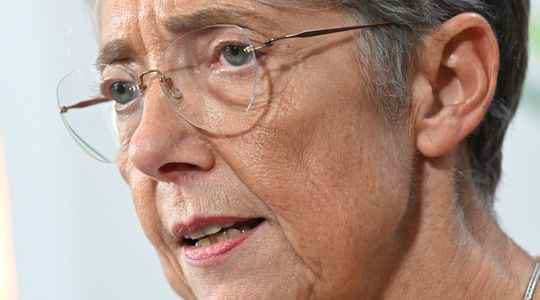Above all, do not split. Elisabeth Borne launched this Friday, October 21, 22 ecological planning projects for which she is responsible to lead a “fairer” transition and make France a “green nation”. Ahead of the presentation of her method, the Prime Minister confided in her ambitions in an interview given to Release. She details these projects “which cover the areas of daily life: mobility, housing, our way of producing and consuming”. That is. But another aspect of this interview seems to take precedence over the government’s ambition for transition.
It is repeated many times during the interview, like a mantra, with its variants. “Mobilization of all”, “not to stigmatize” (three times), “to avoid splitting”… “There are not those who are in the right because they would have good behavior and the others who ‘we stigmatize,’ adds the Prime Minister. And to go one better during the presentation of this plan at La Recyclerie, in the 18th arrondissement of Paris: “Let’s avoid fracturing ourselves. Let’s hear both those who fear that we are going too fast and those who are afraid that we will not “do not do enough. We must join forces. Go to the front together” and “combine radicalism and progress”. The message is clear, this ecological transition must “get on board” the whole of society.
Elisabeth Borne insists. Because in reality the risk of fracture is there. Inflation, reforms of pensions and unemployment insurance, the perilous sites are numerous and raise fears of divisions between the French. The issue of ecological transition is no exception to this rule. After a summer marked by the direct consequences of global warming (drought, forest fires, heat wave), but also by controversies over the use of private jets, and the emissions of the wealthiest, the energy crisis draws a new fracture. The rise in gas and electricity bills will not be experienced in the same way by everyone. The government knows this, and is planning more targeted aid, which will have to take over from the tariff shield after 2022. Will that be enough? The figures are clear, the richest are those who emit the most CO2. But at the national level, as at the global level, the most modest will be the most vulnerable to climate change, and to the sometimes brutal consequences of the transition.
“I don’t want to stigmatize people on their way of life”
The divide does not end there. It also exists between the inhabitants of cities, whose transport-related emissions can be easily reduced by more public transport, cycling or walking, and those of rural areas where the car is still an imperative. Between those who have taken the step of a less meaty diet, and those who remain attached to the traditional consumption of meat… “I don’t want to stigmatize people on their way of life”, insists Elisabeth Borne. And to assume an ecology “of responsibility, where we defend a “greener” France which is also “more just”, “a condition for the ecological transition to be accepted, effective and unifying”.
The polls show it: the French are aware of the climate crisis, but ask that the efforts come above all from the State and companies. By 2050, the sobriety objectives are great, it is a question of reducing energy consumption by 40%. However, the objectives can be recalled individually: the ecological transition towards a carbon-neutral France by 2050 will require everyone to make major changes in their consumption and travel habits. The rich will “obviously have to contribute to this transition”, says Elisabeth Borne without mentioning their share of responsibility. To convince it will be necessary to show pedagogy, and social justice. While the average CO2 emissions of a Frenchman is around 10 tons a year, the richest would emit on average more than double. By 2050, these emissions will have to fall drastically to 2 tons per year and per inhabitant. A reality that will require everyone to state their part of the effort to be provided.
